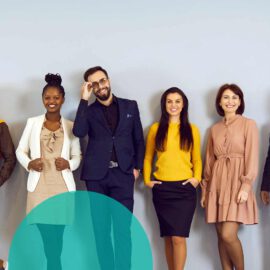Conference on Cannabinoid-based Medicines: their integration into Quebec’s clinical practice
On March 24th, 2021 we were pleased to present our fourth annual medical cannabis forum series, now called the “Conference on cannabinoid-based medicines” – this event dedicated entirely to Quebec healthcare professionals.
In Quebec, whether one is for or against its therapeutic use, medical cannabis is now one more tool in the modern pharmacopoeia. We believe that it is now essential to recognize the multidisciplinarity of the stakeholders involved in medical cannabis treatments, whether it is in relation to authorization, services and care provided to patients or in relation to research. More importantly, we want to bring these stakeholders together to discuss the integration of this additional tool into clinical practice in Quebec.
This conference aimed to provide a better understanding of some of the challenges surrounding medical cannabis and to offer resources, including our training program, to overcome these challenges and increase general medical cannabis knowledge.
We hold this event every year because we believe that medical cannabis is an essential service that must be free of stigma and integrated into medical practice. By hosting we hope to bring together the diverse perspectives of our presenters and audience to encourage innovative medical cannabis patient care, and do so by expanding on the learning beyond each participant’s specialization.
Highlights from the talks:
If you weren’t able to attend we’re excited to share some of the highlights that our staff shared from each of the talks.
Lack of knowledge of the endocannabinoid system: An important obstacle to overcome
Vi Dam, RN, MSc
Ms. Dam’s presentation was highlighted by a patient testimony that was very powerful and touched other presenters as well as attendees. It showed how complex and difficult it is for patients to find the right treatment and highlighted the lack of healthcare professional training and support for patients for whom conventional treatments do not work. It reminded us why we do what we do and how essential our services are.
Testimony of a specialized nurse practitioner
Isabelle Têtu, IPS, MSc
Ms. Têtu has noted the number of patients asking about medical cannabis in her clinical practice is increasing, but inadequate training for healthcare professionals have left many professionals unable to support their patients with the answers to the questions they have.
PANEL: Integrating medical cannabis into your clinical practice: From novice to experienced physicians
Dr. Naïla Debache, MD, Dr. Jérôme Lopez, MD and Dr. Viviane Hoduc MD
All three of these inspiring doctors took different paths leading them to integrate medical cannabis to their routine practice. At first, it was a frustrating trial-and-error, learn-as-you-go method to learn about medical cannabis, and we are proud that Santé Cannabis was the resource that helped them overcome this challenge through our clinical experience.
“Cannabis is illegal in France, and I arrived here with apprehensions […] I started learning about it, thinking that I would maybe have patients using cannabis for recreational purposes. I wanted to be ready to meet problems related to this. So I collected information, in the end mostly about medical cannabis.” (our translation) – Dr Lopez
He expanded about how his training and investigation changed his mind, and he now considers medical cannabis as part of his routine practice.
Cannabinoid Titration and Opioid Tapering in Patients with Chronic Pain – a consensus-based algorithm
Dr. Jordi Perez-Martinez
Dr. Perez’s presentation was very interesting and pertinent for clinical practice, especially considering the current opioid crisis. He presented an algorithm for cannabinoid titration and opioid tapering in patients with chronic pain that has been built as many chronic pain specialists reached a consensus.This algorithm brings hope that more algorithms and clinical guidelines can be developed, even without a conclusive medical cannabis consensus in the general medical community.
About the important question, “are there age limits with this algorithm?”:
“We always start with the notion that the use of THC in young patients with a developing brain is probably not a good candidate. But we can’t forget that these are patients who are already taking opiates and we know that opiates have a negative effect on cognitive development.” Dr. Perez-Martinez
There remains a need for rigorous research, and a broader consensus must be reached before medical cannabis for pain management will be implemented everywhere.
Workshop: Should cannabinoid-based treatments be maintained in the medical field?
Dr. Charles Sun
Cannabis is a unique medicine, as there are currently two access points to this substance: for medical purposes through the medical cannabis program, and for non-medical use through the retail points of the SQDC. Dr. Sun asked the audience about their opinions on maintaining two separate programs, and what might be reasons for or against.
We were pleasantly surprised to see that almost every person who responded said they believe that a seperate medical cannabis program should exist outside of the non-medical program. Dr. Sun asked them to expand on their reasoning and the answers collected from the different questions provided food for thought:
- A large number of responders agreed that some of the disadvantages of the medical cannabis program are related to the complexity of the system and prescription process. Indeed, the medical cannabis program is far from perfect, but hopefully these disadvantages can be minimized in the future as the regulations evolve.
- There was a great consensus on the importance of patient medical assessment by healthcare professionals prior to medical cannabis treatment, in order to limit potential harms: 96% of responders chose this reason concerning the need for a seperate medical cannabis program.
Panel: medical cannabis use and management issues in different healthcare facilities in Quebec: the pharmacist’s perspective
Sarah Girard, pharmD M.Sc., Philippe Arbour, BPharm MSc and Andrée Néron, BPharm DPH FOP
The panel composed of three pharmacists was extremely interesting as they shared their challenges with medical cannabis in their practices. They are trying to work within a system where they are traditionally seen as experts on the medicine, but find themselves at a loss when asked by their patients and colleagues about cannabis treatments.
A particular friction point they brought forward was how difficult and tedious it is to obtain complete patient drug information, as medical cannabis is not included in the usual drug list that patients bring. Furthermore, patients do not always think of informing their pharmacist that they take cannabis, be it for medical or non-medical purposes – highlighting the need for pharmacists to update their questionnaires to include cannabis as well as recreational substances like alcohol.
Legal Issues and Patient Education
Max Silverman, LL. B and Naomie Parrot, RN, BSc
For medical cannabis patients, not only do they have to concern themselves with the understanding of their medication, but also with understanding complex laws surrounding cannabis. Our nurse Naomie Parrot covered some of the medical side of education, while Mr. Silverman, a lawyer engaged in litigation for human rights, covered some of the current legal consequences for medical cannabis patients, highlighting some of the regulations that are incomplete or missing.
For example, there are contradicting and unclear laws between federal and provincial levels as to workplace accommodations. An employee cannot be terminated for using medical cannabis, yet the same employee could be terminated because of medical cannabis side-effects impacting their ability to accomplish their work. It is an issue that is especially worrying if the workplace is resistant against medical cannabis use, and patients’ rights are on the line. Mr. Silverman ended the day with a call to action for all of us – some things need to change, and it’s up to each of us to make a difference.
Conclusion
We were thrilled by the attendance of so many Quebec healthcare providers, patient advocates and organizations, and industry representatives who came to learn about the current state and future of medical cannabis in Quebec. Our speakers brought their expertise, passion and new ideas and for that we are very grateful.
We look forward to hosting our next event in May – this one focusing on international research innovations to improve patient care; and to many more years of our Conferences on Cannabinoid Medicines. Will we see you there?
Authors: Charlotte Bastin, Andrée Charbonneau
Join us at our next event

Quebec Cannabis Forum: Moving Towards a Comprehensive Approach to Public Health
8:00-5:00 pm EDT May 18th, 2022
Scena, Montreal
(EVENT IN FRENCH)



